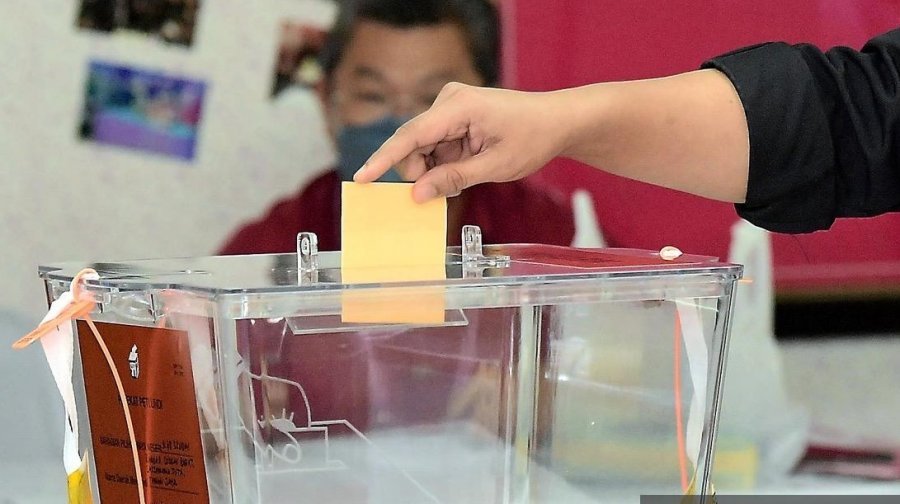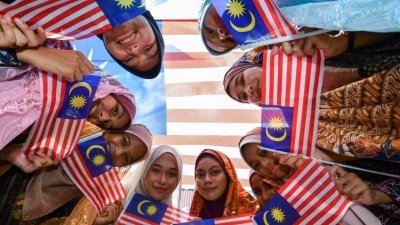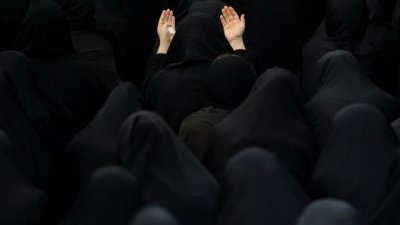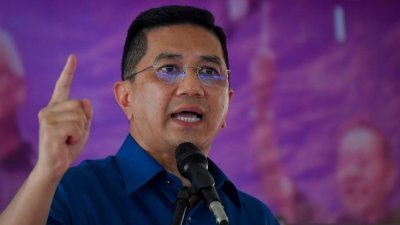我在上一篇专栏文章中就指出,在刚过的6州选举,大多数马来选民将不得不在两大阵营的两种伊斯兰教观念之间做出选择。
这会是哈迪阿旺的所谓纯洁和保守的伊斯兰观还是安华昌明大马下,强调可持续性、繁荣、尊重、创新、可信赖以及保障非穆斯林权益的价值观胜出?
哈迪的伊斯兰教观念不仅带有反自由和反进步的议程。其公开宣称要打造的伊斯兰国目标,也不利于非马来人和非穆斯林的权利和自由。安华的昌明大马相对于哈迪的至高无上伊斯兰教观,是较温和版本,并承诺维护和保障非穆斯林的权益。
除了宗教成分外,慕尤丁领导的土团党,是一个以马来民族主义为根基政党——只有马来人和其他土著才可成为党员——与哈迪的伊斯兰教观融合在一起,跟公正党和其他希盟成员党所主张的马来西亚是一个包容和多元化国家,形成了鲜明对比。
6州选举结果已出来。虽然维持现状,但国盟获得大多数马来选民的坚定支持,如果这趋势持续,国盟将会赢得下届大选并取代希盟进驻布城。
6州选举按赢得席位汇总:

以下是6州选举的其他要点及关键问题:
巫统在去年选举中的失利进一步扩大,一些观察家认为,巫统不再是马来西亚政治中的一股力量。许多分析人士认为,扎希面对的贪腐指控及其领导方式是导致巫统表现不佳的因素。现阶段更换党主席能否为巫统带来复苏?
公正党失掉的议席比巫统还多——26席对23席。为何蓝眼的支持率会进一步下滑。这糟糕的表现类似2020年至2022年期间四次州选举中的失利。当时的失利,令党内提出了需要调整策略、如何向人民转达党讯息、选举机制培训和数据运用,以应对选举挑战。 如今,公正党又如何解释新一轮的失利——尤其是在雪兰莪州——这将是该党战略家最关心的问题。马来选民还想要什么,是公正党面临著的挑战缩影。
就赢得席位而言,伊党是最大赢家,其中选率达到92%,并在雪兰莪州和森美兰州取得了前所未有的胜利。该党掌控丹登吉三个州大臣职位和议会绝对多数。伊党也在森雪两州站稳了脚跟。在雪兰莪州,伊党上阵17席赢得10席,这将鼓舞该党扩大其在整个半岛的势力,并在第16届全国大选时在国盟内部争取更多上阵席位。这一发展会否令其调整强硬的伊斯兰形象,以争取非穆斯林的支持?
土团党能受制于伊党?
土团党赢得比上届选举更多议席。但在其上阵的81个席位中只拿下了39席,中选率远低于伊党。在去年全国大选时,土团就被视为伊党的小弟,而6州选举成绩似乎印证了这一点。由前巫统领袖和支持者组成的土团党会乐意接受伊党主导和卓越地位吗?
行动党进一步证实了其在城市选民中的主导地位,在吉打、槟城、雪兰莪和森美兰上阵的47个议席中赢下46个。令该党感到鼓舞的是,其不仅拿下华裔占多数的选区,也在混合选区胜出。但如果它不想失去阵地并把自己局限于一两个州,就必须在下一届大选中推出更多非华裔候选人。行动党依然无法在乡区取得任何进展,这将是该党致命弱点,尤其是考虑到选区选民人数的结构性失衡。
最后,如公正党的通讯及数码部长法米所透露,基于选区划分的不公,希盟总票数虽约有50%,但只获得了245个席位中的40%议席,这可能是决定来届大选结果的最重要因素。
目前尚不清楚法米是如何得出这些数字的,但之前的一些研究已一致指出,议席之间选民人数的巨差,有利于选民人数较低的乡村选区,并有助于保护马来人和土著的政治主导地位。
过去,巫统在马来半岛选举中的优势,就来自于该党在乡村选区的主导地位,可是巫统在乡区选民的主导地位及影响力,如今已被伊党和土团党所取代。
当下,急需采取改革措施减少选区划分不公和分配的不当,以改变目前不公平结构,在这个结构下,城市选民和主要是华人——但现在也包括大量马来人的选票价值无法公平显现。
林德宜《6州选举要点》原文:Takeaways from the state elections
In my last column, I noted that for the coming state elections, the majority Malay electorate would have to choose between the 2 kinds of Islam espoused by the rival coalitions.
Was it going to be Hadi’s brand of supposedly pure and conservative Islam or Anwar’s Madani with its proclaimed principles of sustainability, prosperity, respect, innovation, trust and compassion and justice for all that will win?
Hadi’s Islam does not only come with a anti-liberal and anti-progressive agenda. It is also antagonistic to the rights and freedoms of non-Malays and non Muslims with its avowed goal of an Islamic state. Anwar’s Madani appears a softer version of Hadi’s ketuanan Islam and promises to uphold and maintain the rights of non-Muslims. Apart from the religious component, the openly Malay nationalistic underpinnings of Muhyiddin’s Bersatu - only Malays and other Bumiputera are allowed membership - fused with Hadi’s Islam also stands in contrast to the inclusive and pluralistic nation that PKR and other Pakatan parties stand for.
The results are now in. Although the status quo has remained in terms of the state governments, Perikatan Nasional has the majority of Malay voters solidly behind it and is now in position to win the next GE and replace the Pakatan government if this trend continues
Summary by seats won:
PH+BN: 99 seats or 40% of seats in the six states
PN: 146 seats or 60% of seats
PH component party seats won dropped from 114 to 80 whilst UMNO seats won fell from 42 to 19
PKR 52 —> 26,
DAP 48 —> 46
AMANAH 14 —> 8
UMNO 42 —> 19
PN seats won, on the other hand, increased from 88 to 146.
PAS 76 —> 106
Bersatu 12 —> 39
Gerakan 0—>1
The following are some other takeaways from this election and key questions that arise
UMNO’s losses from the last election has escalated to a point where some observers see the party as no longer being a force in Malaysian politics. Many analysts see the corruption charges against Zahid and his leadership of UMNO as key to UMNO’s poor performance. Can a change in party presidency at this stage bring about a revival in UMNO?
PKR lost as many seats as UMNO - 26 vs 23. Questions will be asked as to why the party has had a further decline in support. This poor performance mirrors earlier losses in four state elections between 2020 and 2022. At that time it was announced that the defeats demanded modifications to the party strategies, narratives to the people, election machinery training and the use of data in line with current election challenges. What are the explanations for PKR’s new losses - especially in Selangor - will be foremost in the minds of the party’s strategists. What more do Malay voters want encapsulates the challenge that PKR faces.
PAS is the biggest winner in terms of seats won with a 92% success rate for its candidates and with unprecedented victories in Selangor and Negeri Sembilan. The party now has a super majority and the mentri besarship of the three northern states. It also has gained a foothold on state power in the southern states. The fact that PAS won 10 of 17 contested seats in Selangor will encourage the party to expand its operations throughout the Peninsula and vie for a larger seat allocation from Perikatan in GE16. Will this development dilute its hardline brand of Islam to reach the unconverted?
Bersatu was able to increase its share of seats from the previous election. But it only won 39 of 81 contested seats - a much lower ratio than PAS. It was seen as a junior partner to PAS in the last GE and this latest performance appears to confirm this impression. Will its previously Umno leaders and supporters be happy to accept PAS political leadership and pre-eminence?
DAP further confirmed its dominance in urban electorates winning 46 of 47 contested seats in Penang, Selangor and Negri Sembilan. What is encouraging for the party is that it secured large majorities in not only Chinese predominant constituencies but also mixed racial constituencies. But it has to put forward more non Chinese candidates in the coming GE if it is not to lose ground and remain a one or two state party. The inability of the party to make any headway in rural Malaysia is and will continue to be the achilles heel of the party especially given the structural imbalance in constituency voter numbers.
Finally an intimation of what may prove to be the most important factor determining the outcome of the coming GE was provided by PKR’s Communications and Digital Ministe Fahmi Fadzil when he revealed that the PH alliance had almost 50 per cent of the total votes but only gained 40 per cent of the 245 seats due to malapportionment in the state seats.
It is not known how he arrived at this figure but previous studies have consistently pointed to seat disparity which has favoured low density rural constituencies and served to protect Malay and Bumiputra political dominance.
The superiority of UMNO in Peninsular Malaysia in past elections has come about from the party’s dominance in rural constituencies, UMNO’s rural voter dominance and the impact on election outcomes has now been replaced by PAS and Bersatu. Urgent reforms to reduce gerrymandering and malapportionment will be needed to rebalance the presently uneven playing field in which urban and largely Chinese - but also now including large numbers of Malay - voters will have their votes count for less than in a fair system.


















